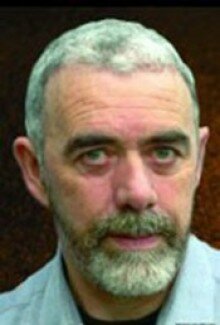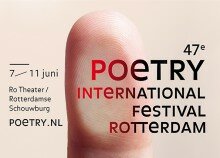
Theo Dorgan was born in 1953 into a large working-class family on Cork City’s Northside. He was educated at the North Monastery, where he was taught in Irish and was a contemporary of the poet Gerry Murphy. He went on to obtain graduate and postgraduate degrees in philosophy and English literature from University College Cork. He later taught there while simultaneously managing the literature programme of the Triskel Arts Centre. He began publishing poems as an undergraduate (studying under John Montague) before going on to publish several collections: The Ordinary House of Love in 1991, Rosa Mundi in 1995 and Sappho’s Daughter in 1998. He has worked as a radio and television broadcaster and for a long time was director of Poetry Ireland, the national poetry organisation. His interest in sailing led to him publishing a best-selling memoir with Penguin, Sailing for Home (2004).
He has worked frequently with musicians. His Jason and The Argonauts, set to music by Howard Goodall, was commissioned by and premiered in the Royal Albert Hall in 2004. A series of texts commissioned from him features in the dance musical Riverdance. His songs have been recorded by a number of musicians, including Alan Stivell, Jimmy Crowley and Cormac Breathnach.
Dorgan has been an editor of many prestigious literary projects, among them The Great Book of Ireland, (1991) (with Gene Lambert), a single volume on vellum containing the work of 149 poets, 120 artists and 9 composers, each of whom worked directly onto the pages of the book; Watching The River Flow, a century in Irish poetry (1999) (with Noel Duffy) and The Great Book of Gaelic (2002) (with Malcolm Maclean). He was also series editor of the European Poetry Translation Network publications and director of the collective translation seminars from which the books arose.
His translations (with Ana Jelnikar) of the Slovenian poet Barbara Korun’s work have been published in the volume Songs of Earth and Air (2005) and are sampled elsewhere on this website. Books of Dorgan’s own poetry have been translated and published in Italy, Spain and Austria.
In his own work, Dorgan displays an individualistic avoidance of literary fashion. Fiona Sampson, editor of Poetry Review, remarked in a review of his work that Dorgan did things no contemporary British poet would risk. Mythopoeia is a recurring motif in his work, and Dorgan has referenced Ovid (long before the explosion of interest in the last decade) in an affecting, earnest way which has eschewed the smart-aleck tones of much contemporary British poetry and at the same time has managed to avoid archaism.
Dorgan’s poetic stratagems have a timeless quality influenced more by the classicism of Robert Graves and the courtly love lyrics of John Montague than by his contemporaries. His engagement with translation has brought other dimensions to his work which have augmented its individualism. The selection here is representative of his themes, ranging from the personal to those which engage with a wider, more public community such as the much admired ‘The Match Down the Park’.
Select Bibliography
Poetry
The Ordinary House of Love, Salmon Poetry, Galway, 1991
Rosa Mundi, Salmon Poetry, Galway, 1995
Sappho's Daughter, Wave Train Press, Dublin, 1998
What This Earth Cost Us, Dedalus Press, Dublin, 2008
Translation
Songs of Earth and Air from the Slovene of Barbara Korun, Southword Editions, Cork, 2005
Non-fiction
Sailing for Home, Penguin, London, 2004
Links
Dorgan’s profile on the Aosdana site
A poem with commentary, published in Magma
A review of Dorgan’s work by Fiona Sampson
A selection of Dorgan’s translations of Barbara Korun


